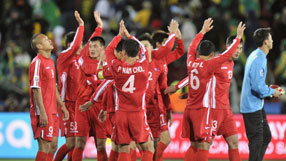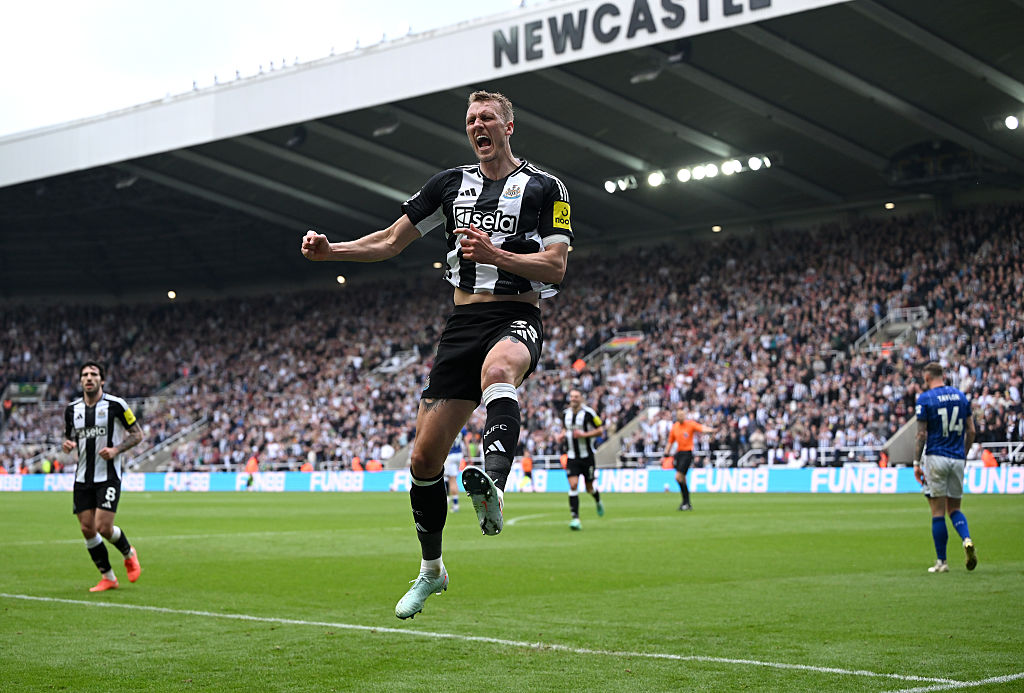North Korea team lift national mood
SEOUL - Given how crazy North Koreans are about football, there was never much doubt in Pyongyang that state TV would air the national team's games in its first World Cup in 44 years, despite questions abroad whether it had the rights.

For North Korea's "Dear Leader" Kim Jong-il, though, there may be more at stake than national pride.
The economy is supine, a food shortage is worsening and new U.N. sanctions loom after the sinking in March of a South Korean naval vessel.
Botched currency reforms last year led to reports of civil unrest in the otherwise tightly controlled police state.
The matches are at the very least a distraction for the North's impoverished masses, and at best will serve up a propaganda windfall to Kim, who succeeded his father and is grooming his third son, Kim Jong-un, to take over.
"It is probably unthinkable that North Korea may not use this opportunity, may not televise the games, when they know that this is really a good opportunity to mobilise nationalist feelings among North Koreans when they are experiencing all kinds of difficulties," said Paik Hak-soon, director at the Center for North Korean studies at Sejong Institute.
The North Korean leadership has triggered skirmishes with the South, conducted missile tests, and provoked other "incidents" to ratchet up tensions on the Korean Peninsula and keep the country's 23 million people focused on the possibility of war, rather than hunger pangs or the lack of paychecks or electricity.
The World Cup would play a similar role, Paik said.
Get FourFourTwo Newsletter
The best features, fun and footballing quizzes, straight to your inbox every week.
DELAYED BUT ON
North Koreans could not watch as their team lost to Brazil 2-1 in the wee hours of Wednesday, Korea time.
Only one TV channel in North Korea broadcasts on most days and almost never shows live events. Satellite TV or Internet are off limits. Nevertheless, diplomatic sources say word spread quickly of the result of the game.
Football has helped strengthen a word-of-mouth network that eats into the state's information cordon.
Each time the North withholds the results of a key match, word spreads quickly among the masses who may tolerate blackouts but cannot stand being in the dark when it comes to football.
This network has also spread word about succession plans in Asia's only communist dynasty and other matters the North's leaders want to keep secret from its people.
By mid-morning the state news agency KCNA had reported on the match. The game will air in the Hermit Kingdom at 8:30pm local time, a South Korean official said.
Such delays are the norm.
Simon Cockerell, general manager of Beijing-based Koryo Tours recalls watching a Champions League semi-final in a bar in North Korea about a week after watching the final in Beijing.
"I remember asking a guy who seemed well into it in the bar if he knew what the result would be, and he was like 'yeah, it was in the newspaper the next day'. He just hadn't seen the game," said Cockerell, who has made 90 trips to North Korea.
"In Pyongyang everybody can tell you the big football names in the world."
Pak Sang-hak, a North Korean defector who has become an anti-North activist leade
